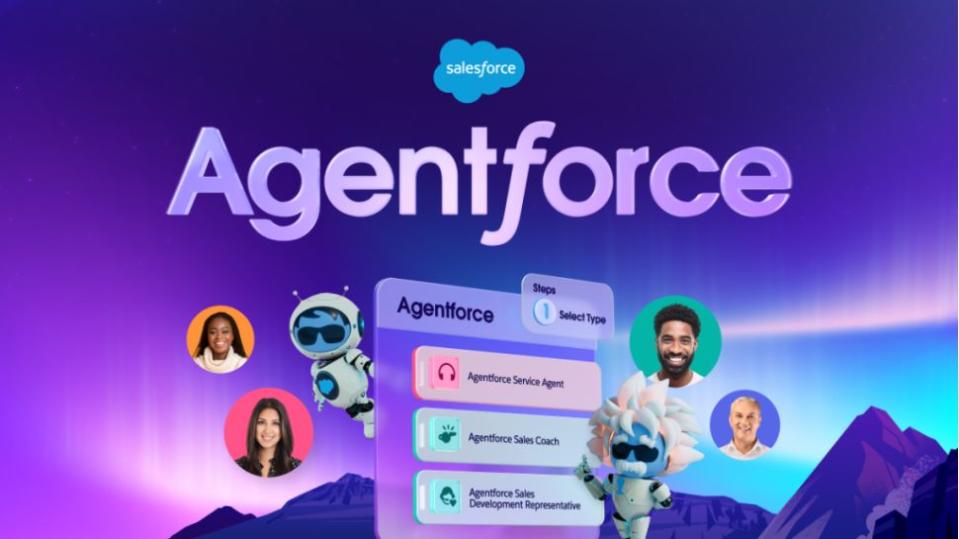When you buy through links on our articles, Future and its syndication partners may earn a commission.

Credit: Shutterstock / NicoElNino
With AI tools now a common presence in businesses and organizations around the world, the focus now turns to getting the most out of these new technologies, boosting efficiency and productivity across the board.
Salesforce has firmly staked its claim as a leader in this new field, with the company’s recent Dreamforce 2024 event dominated by AI, particularly agents, which it feels are the future of the technology.
With CEO Marc Benioff calling agents, “third wave of AI”, Salesforce clearly views the technology as the way forward, and TechRadar Pro recently got to sit down with company leaders to hear more about this vision.
“Driving real value”
“For the better part of 25 years now, Salesforce has staked our entire innovation strategy on being able to help our customers get through whatever the technology wave was at that moment,” noted Patrick Stokes, Global EVP, Product & Industries at Salesforce at the company’s recent Executive Forum event in London.
“We helped them get to the cloud, to mobile, social…so when generative AI really hit, we took a big step back and said, how do we leverage this as part of a bigger system?”
“Everyone was enamored with, what’s the most powerful LLM, how many parameters does it have, how much data has it been trained on, etc,” he added, “we’re not going to try to build one that’s any stronger than the rest, what we want to do is connect the data and the action, because if we can do that, we can actually leverage this in a way that drives real value.”
At Dreamforce 2024, the company delved deep into how the new era of AI would not require customers to do the heavy lifting when it comes to implementing what is a multi-faceted and complicated technology stack into their business.
But it was keen to emphasize the benefits of utilizing platforms such as Agentforce, which it claims can bring huge opportunities and advantages to businesses of all sizes, not least in helping provide an entirely new form of technology.
“Watching the way an AI can effectively replace the logic layer of your application, instead of having to hand-write the logic – it can just reason and come up with that logic – that represents an entirely new way to deliver software,” notes Stokes.
“This is a massive, massive breakthrough. The LLMs are going to get better, they’re very much like CPUs, they’re going to get a little faster each time…but the real value of the CPU is when it’s part of the broader system – and so as we connect (AI) into the system now, not only can it be that logic layer, but it can actually execute things, it can come up with the logic and go execute.”


Salesforce Agentforce
“The opportunity ahead of us is huge,” adds Zahra Bahrololoumi CBE, UKI CEO, Salesforce, “people are seeing the opportunity, the productivity gain, the opportunity to really augment their workforce, minimize burnout and to interact with customers brilliantly.”
“The penny that’s dropping with our customers is that they just don’t want to DIY their AI – it’s too costly, they can’t do it in a way that is sustainable, they’re not going to have the means, and the ability, to keep that ever-fresh and continuous improvement – and so that’s where the power of this is, in an integrated platform.”
The worry for many, of course, is that these huge technological steps forward will mean human workers will no longer be needed in the workplace. Like many other AI giants, Salesforce is keen to dispel that notion, highlighting the opportunities for the technology to augment, rather than replace people, in a new smarter future.
“I think any time you have these technology shifts, you have labor shifts as well, and labor is going to move from lower-value work to higher-value work,” Stokes says.
“What impact that has on the net amount of labor or jobs that are there, I don’t think we know, but I think it would be frankly naïve to assume that it’ll be a net loss, I don’t think we’ve see that anytime in history, these technologies usually have an economic uplift – but there will certainly be a shift.”




